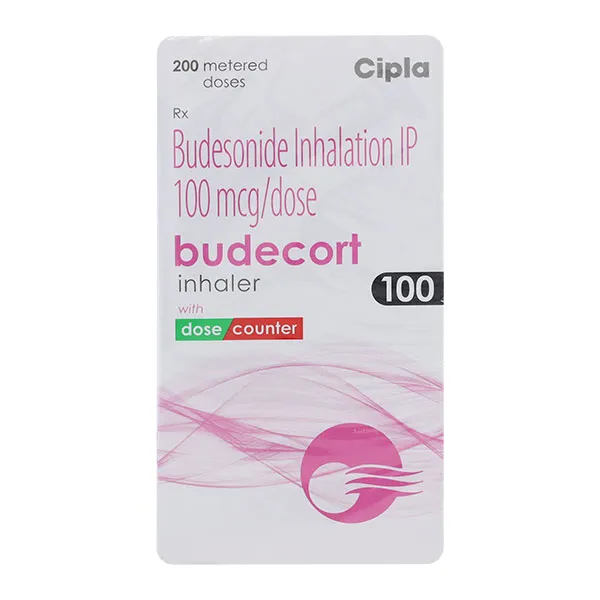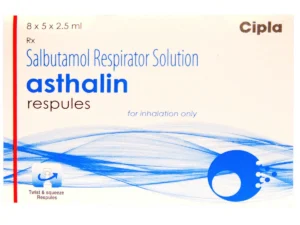✅ Budesonide 200 Inhaler: Complete Guide to Uses, Dosage, Side Effects & Inhalation Instructions
What is Budesonide inhale?
Budesonide inhaler, a corticosteroid medication, is primarily used to control and prevent asthma symptoms such as wheezing and shortness of breath. It works by reducing inflammation in the airways, making breathing easier and improving asthma control.
📦 Composition
Each puff contains:
- Budesonide 200 micrograms (mcg)
Other components (may vary by brand):
- Propellant (e.g., hydrofluoroalkane/HFA)
- Stabilizers (non-active)
✅ Indications (Uses)
Budesonide 200 Inhaler is primarily used to manage and prevent symptoms of chronic respiratory conditions, including:
- Reduces airway inflammation and prevents asthma attacks
- Especially effective for moderate to severe asthma
- Used as part of long-term maintenance therapy in combination with bronchodilators
- Less common but used under medical advice in conjunction with other treatments
Not a rescue inhaler. It does not provide immediate relief during asthma attacks.
⚙️ Mechanism of Action
Budesonide is a glucocorticoid steroid that:
- Binds to intracellular corticosteroid receptors in lung cells
- Inhibits the release of pro-inflammatory cytokines and mediators
- Reduces swelling, mucus, and irritation in the airways
- Enhances lung function and breathing over time with regular use
🕒 Dosage & Administratio
Typical Dosage:
- Adults and adolescents (>12 years): 200–800 mcg per day, divided into 1–2 doses
- Children (6–12 years): 100–400 mcg per day, depending on severity
Always follow your doctor’s prescription. Dosage may be adjusted based on response.
How to Use:
- Shake the inhaler well before each use.
- Exhale fully, then place the mouthpiece into your mouth.
- Press the inhaler once while inhaling deeply.
- Hold your breath for 5–10 seconds, then exhale slowly.
- Rinse your mouth after use to prevent oral thrush.
⚠️ Side Effects
Common:
- Hoarseness of voice
- Oral candidiasis (thrush)
- Throat irritation
- Cough
Less Common/Serious:
- Allergic reactions (rash, swelling, breathing difficulty)
- Behavioral changes (mainly in children)
- Suppression of adrenal function with long-term use
- Growth suppression in children (rare, with prolonged use)
🛑 Warnings & Precautions
- Not for acute asthma attacks – use a short-acting bronchodilator (e.g., salbutamol) instead
- Monitor for signs of oral fungal infections
- Use with caution in patients with:
- Tuberculosis
- Liver disease
- Respiratory tract infections
- In long-term use, monitor:
- Bone mineral density
- Ocular pressure (for glaucoma or cataracts)
- Growth in children
🔄 Drug Interactions
- CYP3A4 inhibitors (e.g., ketoconazole, ritonavir) can increase budesonide levels and side effects
- Use with other corticosteroids may increase systemic steroid exposure
- Not to be mixed with other medications in the inhaler unless specifically formulated
📦 Storage Instructions
- Store below 30°C (86°F)
- Protect from frost and direct sunlight
- Do not puncture or burn the canister, even when empty
- Keep out of reach of children
💡 Patient Counseling Tips
- Take the inhaler daily, even if symptoms are absent
- Always rinse the mouth after use to prevent infections
- Do not exceed the prescribed dose
- Learn the correct inhalation technique for optimal drug delivery
- Keep track of remaining doses if the inhaler has no dose counter









Reviews
There are no reviews yet.